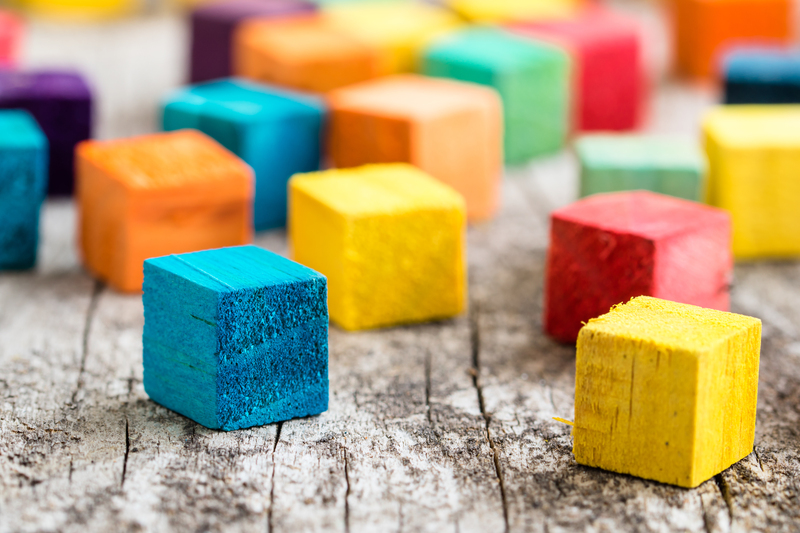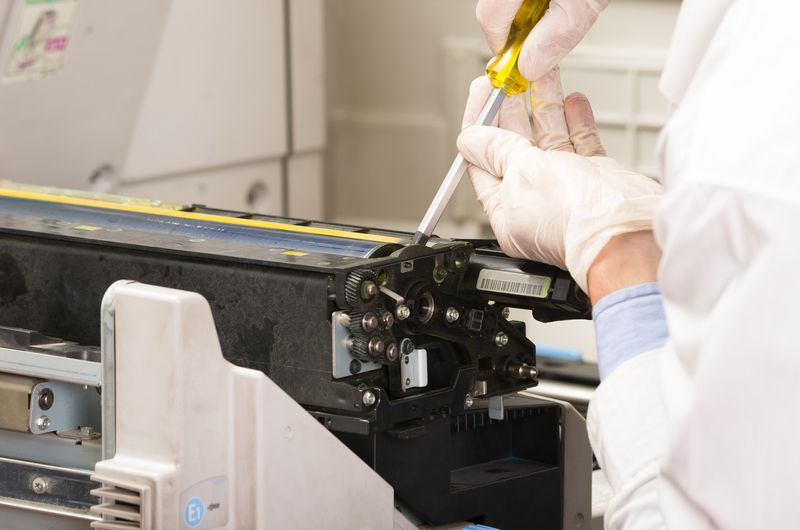Minimizing Effort in Plant Pot Disposal: The Essential Guide
As gardening surges in popularity, so too does the issue of plant pot waste. Whether you're a home gardener or manage a commercial nursery, you likely find yourself overwhelmed by empty, broken, or unused plant pots. These containers--often made from plastic, terracotta, ceramic, or biodegradable materials--can quickly accumulate and contribute to clutter or environmental issues. Minimizing effort in plant pot disposal is therefore not only environmentally responsible but also essential for maintaining a tidy and organized garden space. In this comprehensive article, we'll explore practical, sustainable, and easy strategies to handle this growing concern.
Understanding Plant Pot Waste - Why Disposal Matters
Pots are integral to gardening but can become an environmental hazard if disposed of improperly. According to the EPA, plastic waste--including plant pots--makes up a significant percentage of landfill content each year. Many pots are made from non-recyclable plastics that can take centuries to break down. Broken ceramics and terracotta pots can also create sharp, hazardous fragments. Proper, effort-minimized plant pot disposal serves to reduce landfill contributions and fosters a greener, safer gardening environment.
The Types of Plant Pots You May Encounter
- Plastic Plant Pots (including #5 polypropylene and others)
- Terracotta Pots (clay-based and porous)
- Ceramic Pots (glazed or unglazed, often decorative)
- Biodegradable or Compostable Pots (made from peat, coir, paper, or rice husks)
- Metal Pots (less common, prone to rust but durable)

Smart Strategies to Streamline Plant Pot Disposal
Finding hassle-free methods for plant pot disposal not only declutters but also supports environmental sustainability. Here's how you can make the process almost effortless:
1. Reuse: The Effortless Alternative
Before disposal, consider reusing plant pots multiple times. This is the simplest, least labor-intensive option and saves money too.
- Replant new flowers or vegetables - Clean pots with soapy water and let dry in the sun to avoid disease transfer.
- Organize tools or accessories using old pots in your garden shed or garage.
- DIY craft or decor projects - Paint or decorate pots to use as flower vases, bird feeders, or storage bins.
- Seed starting - Small pots are perfect for germinating seeds each season.
Tip: When reusing plastic pots, avoid those that have become brittle or show signs of UV damage, as these can easily crack and contribute to microplastic pollution.
2. Recycling Plant Pots Effectively
Most commercial nurseries and local councils now offer some type of plant pot recycling program. Here's how to minimize your effort:
- Locate local recycling centers: Many garden centers accept used pots for recycling. Call ahead or check their website.
- Collection events: Research community collection days where residents can drop off old pots, trays, and labels in bulk.
- Clean before recycling: Quickly rinse pots to remove soil and debris, which makes sorting easier and more successful at recycling facilities.
- Understand the resin codes: Most plastic pots are #5 (PP), but some may be made from #6 or #2. Not all recycling programs accept every type, so check guidelines.
3. Donate & Share to Spread the Convenience
- Donate to community gardens or schools: These organizations often need pots and welcome donations, saving you the hassle of disposal.
- Share with neighbors: Leave clean pots at the curb with a free sign, or post on neighborhood swap groups like Nextdoor or Facebook Marketplace.
- Offer to local nurseries: Some nurseries accept returned pots for reuse with new plants.
4. Composting and Biodegradable Options
If you use biodegradable or compostable plant pots, disposal becomes even simpler. These pots--made from peat, coconut coir, paper pulp, or rice husk--can often be planted directly in the ground, where they break down naturally and add organic matter to your soil.
- Check compostability: Make sure the label says 100% compostable--some "eco" pots still contain plastics.
- Add to compost bin: Break the pot into smaller pieces for faster decomposition and mix with kitchen or garden waste.
- Plant directly: Many compostable pots are designed to disintegrate in the soil, simplifying disposal even more.
5. Responsible Trash Disposal When All Else Fails
If your only option is trash disposal, try to minimize environmental impact by:
- Breaking large pots: Reduce volume in landfills by smashing large or broken pots into smaller pieces (using protective gear).
- Responsible bagging: Place sharp ceramic or terracotta fragments in thick, sealed bags to prevent injury to sanitation workers.
- Avoid burning: Never burn plastic pots as this releases toxic fumes. Recycle whenever possible.
Pro Tips to Reduce Plant Pot Accumulation in the First Place
Minimizing effort in plant pot disposal can be tackled at the source. Choose sustainable plant pot options and adopt eco-conscious gardening practices to reduce future waste:
Opt for Plant Pot-Free Purchases
- Buy bare-root plants: These come with no pot at all and establish quickly when handled properly.
- Use soil blocks or grow bags: Skip the pot by using alternatives like compostable grow bags or soil blocking trays.
Choose Long-Lasting or Recycled Pots
- Invest in quality: Spend a little more for durable pots made from recycled materials or thick, long-lasting plastic that won't degrade quickly.
- Repurpose containers: Use old buckets, tubs, or kitchenware as plant pots to give new life to everyday items.
Ask About Return Programs
- Check with your nursery if they accept pots for return or reuse.
- Some big-box stores now allow customers to drop off old pots in exchange for discounts or credits.
Local and National Resources for Easy Plant Pot Disposal
Many regions offer resources that take the guesswork--and effort--out of disposing of unwanted plant pots. Here's how to find them:
Find a Recycling Center Near You
- Visit Earth911's search tool for recycling locations in the United States.
- Contact your city or local waste authority to ask about special plastics recycling days.
- Nationwide chains like Lowe's and The Home Depot frequently run plant pot recycling bins during spring and summer.
Use Mobile App Solutions
- Apps like iRecycle or local waste management platforms can guide you to drop-off events and recycling centers with a few taps.
Partner with Local Gardening Clubs
- Join community garden clubs or collectives with sharing and repurposing initiatives.
- Many groups coordinate seasonal pot swaps where you can exchange or donate pots with minimal effort.
Environmental Benefits of Efficient Plant Pot Disposal
Why put effort into minimizing plant pot disposal? Effortless, organized disposal practices offer several key advantages:
- Reduces plastic pollution and landfill use
- Prevents harmful chemicals from certain plastics or ceramics leaching into soil and groundwater
- Encourages community sharing and resourcefulness
- Supports local recycling initiatives and green jobs
- Makes your own gardening space safer and more organized
Together, these benefits highlight the importance of simple, efficient disposal practices and motivate everyone to take part in sustainable gardening.

Frequently Asked Questions on Plant Pot Disposal
- Can I recycle all plastic plant pots? -- Not always. Check for a recycling symbol (#2 or #5 are most accepted), and confirm with your local recycler first.
- Is it okay to throw ceramic or terracotta pots in the trash? -- Small pieces can go in the trash, but consider breaking down for safety and landfill space, or find creative reuse opportunities instead.
- Are there alternatives to plastic pots? -- Yes! Compostable pots, coir, peat, rice husk pots, or even fabric grow bags.
- What should I do with broken pots? -- Use shards for drainage in larger pots, mosaic projects, or as pathway edging in the garden.
- Why shouldn't I burn old plastic pots? -- Burning releases toxic chemicals harmful to people, pets, and the environment.
Conclusion: Make Plant Pot Disposal Effortless and Eco-Friendly
Disposing of plant pots doesn't have to be time-consuming or environmentally damaging. By embracing simple recycling, reusing, donating, and composting options, and making informed purchasing decisions up front, you can dramatically minimize your effort in plant pot disposal and reduce your environmental footprint. Start small--donate a few pots, ask about recycling programs, or switch to compostable options--and watch your gardening life become greener and less cluttered, one pot at a time.
Ready to make a change? Begin with your next plant purchase or cleanup day, and experience how effortless plant pot disposal can truly be.